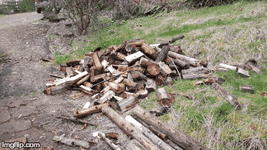Bronze Supporter
- Messages
- 8,264
- Reactions
- 18,012
snippets:
The practice of leaving the food out for a noon snack also would lead to what was referred to as "Summer Complaint", or as we would call it, diarrhea… which was probably a low level of food poisoning. The attitude was 'So you have summer complaint? Don't we all. Keep working.' I'll say it now, those were some tough people.
Foods were stored in bug proof containers. The most popular was fifteen pound capacity metal coffee cans with tight lids. These were for day to day use in the kitchen. (I still have one of them. It's a family heirloom.) The next were barrels to hold the bulk foods like flour, sugar, corn meal, and rice. Everything was sealed or the vermin would get to it. The vermin was also why people sifted flour in particular. There was always at least one, preferably two, months of food on hand. If the fall cash allowed, they would stock up for the entire winter before the first snowfall.
Homestead: Preparedness Lessons from the 1930s
Homestead: Preparedness Lessons from the 1930s
The practice of leaving the food out for a noon snack also would lead to what was referred to as "Summer Complaint", or as we would call it, diarrhea… which was probably a low level of food poisoning. The attitude was 'So you have summer complaint? Don't we all. Keep working.' I'll say it now, those were some tough people.
Foods were stored in bug proof containers. The most popular was fifteen pound capacity metal coffee cans with tight lids. These were for day to day use in the kitchen. (I still have one of them. It's a family heirloom.) The next were barrels to hold the bulk foods like flour, sugar, corn meal, and rice. Everything was sealed or the vermin would get to it. The vermin was also why people sifted flour in particular. There was always at least one, preferably two, months of food on hand. If the fall cash allowed, they would stock up for the entire winter before the first snowfall.
Homestead: Preparedness Lessons from the 1930s
Homestead: Preparedness Lessons from the 1930s












